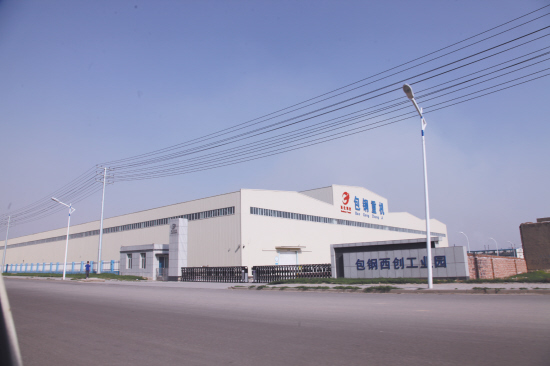Manufacturing grows greener in N China's Baotou

Baotou Metal Deep-Processing Zone [Photo/baotounews.com.cn]
The city of Baotou in North China's Inner Mongolia autonomous region has been working hard to optimize its industrial development - making it more efficient and environmentally-friendly - and to develop a green manufacturing system, according to local media reports.
The city has accelerated resource conservation and environmental protection and promoted the green transformation and high-quality development of its old industries in recent years, as part of its efforts towards becoming a zero-waste city.
A zero-waste city is an advanced urban development and management model that aims to promote eco-friendly lifestyles, minimize waste, strengthen recycling programs and ensure that harmful waste is not released into the environment.
In January 2019, the General Office of the State Council - China's Cabinet - issued the Pilot Work Plan for the Construction of Zero-Waste Cities.
A total of 11 cities were designated as zero-waste pilot cities by the Ministry of Ecology and Environment on April 30, 2019. Baotou is the only city in the Inner Mongolia autonomous region to make the list.
At present, nine major projects including a bainite rail paralympic and residual stress heat treatment production project worth 1.45 billion yuan ($224 million) have been introduced to the Baotou Metal Deep-Processing Zone.
The city's installed capacity of new energy has reached 5.28 million kilowatts, of which wind power and photovoltaic installed capacity are 4.48 million kilowatts and 800,000 kilowatts respectively, and renewable energy power generation capacity is 36,000 kilowatts.
It has actively promoted the establishment of renewable energy application demonstration areas, as well as moving up the deployment of new energy utilization projects such as solar and wind energy in coal mining subsidence areas and in mining restoration areas including Shiguai district and Tumd Right Banner.
In addition, the city continues to improve its supervision of waste. It has developed a networked monitoring platform for industrial solid waste, and used big data and internet technology to promote the establishment of a complete and detailed intelligent supervision model for industrial solid waste in the city.
